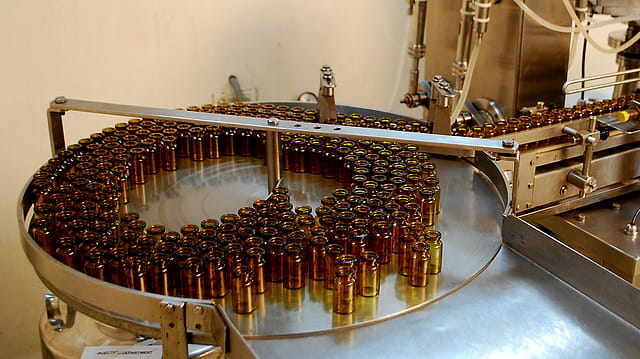USFDA inspections to be less disruptive for Indian pharma sector: Report
ADVERTISEMENT

The likely pick-up in United States Federal Drug Administration (USFDA) inspections during 2023 and 2024, while having an impact on some facilities and entities, will be less disruptive for India's pharma sector compared to the situation during 2015-2016, according to India Ratings and Research.
Indian pharma companies have increasingly de-risked their operations to mitigate cash flow impact of this disruption by slowly and steadily increasing sales to non-US markets, focusing on high margin and high return on equity (RoE) branded generics, and increasing the share of API manufacturing, the ratings agency says in a report.
Companies have worked towards strengthening their processes with the help of global regulatory consultants and improved training and automation to comply with USFDA requirements, it adds.
However, players with higher exposure to the US market and a low level of diversification could still see some impact if FDA inspections are unsuccessful, says Ind-Ra.
"The anticipated pick-up in inspections could also provide clarity and visibility on the facilities awaiting approvals for the past three to four years with some of them already receiving the necessary approvals in 2022," the report says.
On Monday, drugmaker Lupin received tentative approval from the USFDA to market its generic version of Dolutegravir and Rilpivirine tablets used for treating HIV infection. The Dolutegravir and Rilpivirine tablets, 50 mg/25 mg had estimated annual sales of $666 million in the U.S., the company said citing IQVIA MAT September 2022 data.
Given the pick-up in inspections, Ind-Ra sees some possibility of lowering competitive pressures in the existing abbreviated new drug applications (ANDAs). During the absence of inspections in the past two years, the competition had increased in the existing ANDAs and the proportion of new ANDA approvals to existing approvals had fallen, resulting in pricing pressure becoming much more pronounced.
The top 15 Indian pharma companies have continued to experience anaemic growth in the US market over the five years ended FY22 (average CAGR of 0.5%) compared to an average CAGR of 19.3% between FY12-FY17, given the increasing consolidation of distributors and the resultant pricing pressures.
With EBITDA margins and returns from the US business remaining muted, diversification into other markets has resulted in the contribution from the US declining to 32% in the first half of FY23 from 39% in FY17, providing cushion to any potential disruption on account of OAIs (Official Action Indicated).
The OAI classification by the US drug regulator means that regulatory or administrative actions will be recommended.
Ind-Ra expects the trend to continue as the attractiveness of the US business continues to wane in relation to the domestic market as well as exports to some of the non-regulated markets. The ratings firm has also seen players scaling down or shutting their US operations.
Pharmaceutical companies will continue to benefit from increasing sales contribution of the domestic markets while growth in the export markets could remain flat in FY23, says India Ratings.